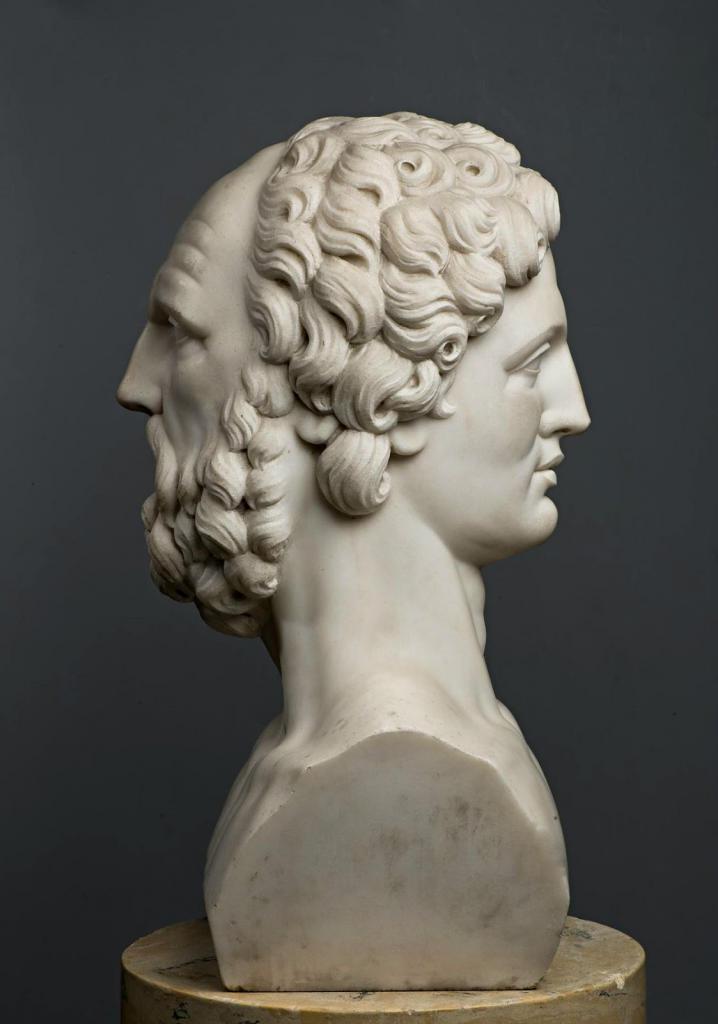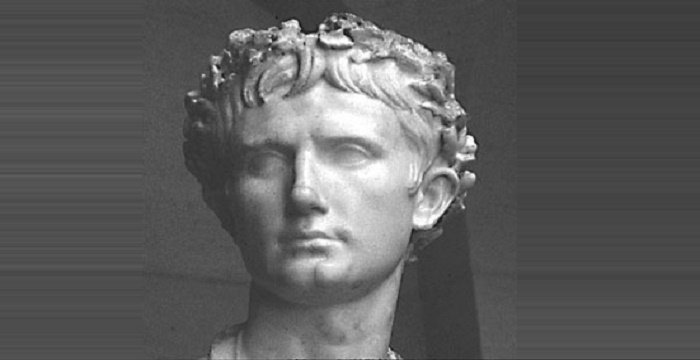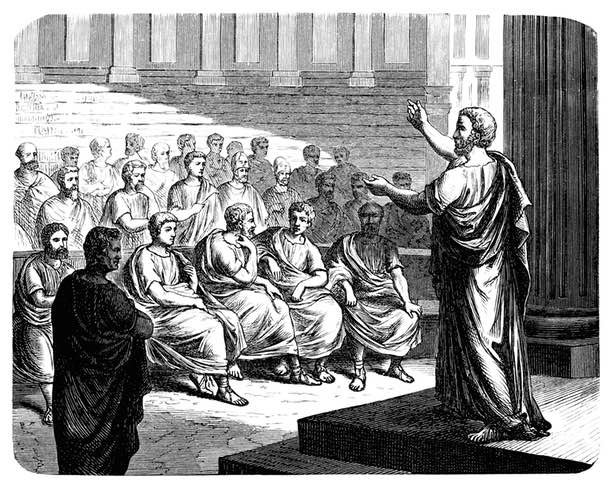Juveniles is a word with several meanings. The main ones will be considered in this article.
First of all, the reader should be reminded that in Russian grammar words that have a similar spelling but differ in meaning are called homonyms. As an example, the concept of "braid".
About polysemy
As you know, this word can mean completely different phenomena, depending on the context in which it is used. So, a sandbank on a river, a female hairstyle, and a tool used in agricultural work are also called a scythe. Among the homonyms is the concept of juvenile.
Ancient Roman poet
First of all, it is worth saying that such a name was one of the most significant poets of the ancient world. His poems left a noticeable mark in world literature. Were it not for Juvenal, the genre of satire, to which he devoted his creative activity, perhaps, would not have existed in his modern sense. Or, at least, this kind of humorous literature would not have acquired the caustic, topical, acrid shade that most works of the Roman classic possess.
Among professional writers, as, incidentally, among ordinary connoisseurs of ancient poetry, the name of Decim Junius Juvenal has long been a household name. So often called ardent, indignant satirist, exposing the vices characteristic of his contemporaries.
Classics of Russian poetry about the ancient Roman genius
The very fact that the work of Junius Juvenal is mentioned in the works of Alexander Sergeyevich Pushkin already suggests that the poems of this poet deserve attention. First of all, in the description of the protagonist of the novel “Eugene Onegin” Pushkin gives the following detail: the young man liked to talk about the work of the satirist. Alexander Sergeevich himself in one of his poems says that he wants his poetry to be like the “sword of Juvenal”.

Another great Russian writer, Zhukovsky, translated all of his satyrs. And this poet was extremely picky when choosing works for translation into Russian. He created his own versions of only the most outstanding works of world literature, such as Goethe's Forest King, verses by Schiller, Southey and so on.

It is also worth mentioning that one Russian literary critic once compared Juvenal, the Roman classic of satirical poetry, with a two-faced mythological character - Janus. This is a pretty good comparison. Juvenile satires contain both criticism of the morals of the contemporary author of society and more “peaceful” works that touch upon moral issues that are relevant for all eras and peoples.
Satires are more often devoted to events of the past, in which, however, some features of the century in which the author lived are guessed. Therefore, this Roman poet was awarded a comparison with a two-faced deity, one face of which looks into the dark past, and the other into the equally gloomy future.

Among the problems raised by the poet Juvenal, in the works from the cycle of “satire”, the upbringing of the young generation was also considered.
Truth and fiction
Little information has survived to this day about the life of this outstanding figure of ancient culture. Nevertheless, several dozen books have been written on his biography. Some of these works are based on unconfirmed documentary facts.
For example, the legend that Decim Juvenal was exiled for his satirical verses containing many attacks on the existing political system, in Greece or even Britain, became widespread.The poet was sent into exile, already at a respectable age, at that time he was over eighty years old. According to this legend, he died in a foreign land. Researchers say this fact is nothing more than a simple invention of biographers who did not possess enough information to create meaningful biographies.
The biography of the great satirist
It is authentically known that Juvenal was born under the emperor Nero in a family belonging to the middle class of Roman citizens. According to some reports, the poet's father was a freed slave. The future writer received an excellent education, learning oratory from famous masters of public speaking.
He also studied foreign languages and jurisprudence. The latter circumstance allowed him to engage in advocacy. Until the age of forty, he earned a living by this profession, as well as by writing speeches for political and public figures.
The Age of Satyr
The emperors, Troyan and Andrian, who ruled at the end of the first - beginning of the second centuries of our era, were one of the best statesmen of this empire. With them, the era of dictatorship and unlimited autocracy ended. The time has come for relative political stability, when the emperor solved state issues in cooperation with the Senate. The feud between these representatives of the authorities has ceased.
Changes for the better have also occurred in the cultural life of the country. An amnesty was announced to many writers and poets who were in exile because of their opposition views. Stopped the numerous denunciations of citizens against each other, which were common under Nero and other rulers of ancient Rome.
Some people known for their false testimony in court were themselves punished. Cultural workers have gained relative freedom of speech. They had the opportunity to criticize the government without fear of retaliation from the authorities.
Two types of satire
Among the most striking poets of antiquity, who spoke about the shortcomings of modern society, Juvenal and Horace are most often called.
The latter was a supporter of softer satire. Laughing at human vices, he was sympathetic to their owners. The poet tried to explain the appearance in a person of certain negative character traits by life circumstances.
Juvenal is the exact opposite of Horace.

He acts only in the role of a convict, his judgment is uncompromising. This poet, like the Pushkin prophet, wants to "burn the hearts of people with a verb." He expresses his position in relation to art and the role of the author of works in the first satire. Juvenal says that many Roman poets are too keen on mythological subjects.
Their works are far from life, and their excessive pathos causes disgust. According to him, there are many pressing problems in the world that should be discussed. In one of Juvenal’s works there is a fragment where author’s self-irony is contained - a phenomenon not typical for the work of this poet. He says that in moments when a person is not visited by inspiration, it can be replaced by observation of negative phenomena in people's lives.
Juvenal's works
Only sixteen creations of the ancient Roman poet, called satyrs, have survived to this day. Usually these poems are usually divided into two groups: early and late. The first includes nine works that contain harsh criticism of public morals, the political system, unseemly actions and deeds of individuals.
These works of Juvenal describe events of the past more often than actual incidents, but all of these episodes contain a hint of the present. The author in one of the satyrs himself claims that it is more reasonable to speak in the language of hints than openly. Nonetheless, his poems are filled with negative examples from his time.
Author style
Juvenal is a person who has been educated in the field of oratory, so many of the techniques used by him are drawn from this area.

For example, he often asks rhetorical questions, through which he emphasizes the idea that he wants to convey to the audience. Also, these verses are characterized by numerous examples confirming one or another thesis. Juvenal literally rains down on the reader a mountain of evidence of his innocence.
In addition, the author repeats the same idea several times, formulating it differently. It seems to mesmerize people by casting a spell several times. For the reader of our days, the study of his works is an occupation that requires endurance and patience. Many words in his texts require clarification, therefore, as a rule, publishers provide them with footnotes. Juvenal often spoke to the public reading his works.

Therefore, we can assume that in verses he mentioned facts familiar to his contemporaries. The Roman satirist used in his works a wide range of techniques for influencing the audience.
He tried to influence both the emotional sphere of people (rhetorical questions, exclamations), and the intellectual (numerous examples from history). Juvenal's favorite stylistic device was hyperbole - a deliberate literary exaggeration, exaggeration.
Mistake
On some Internet sites you can find an erroneous statement that the most famous creation of Juvenal is “Satyricon”. The authors of these notes confuse this work with satyrs really belonging to the poet’s pen, which is discussed in this article. “Satyricon” was written by another Roman writer - Petronius. Moreover, his work belongs to the prosaic genre. It is considered the first novel in the history of world literature.
A distinctive feature of this work is that Petronius supplies the prose text with poetic inserts written in the style of Petrarch, Horace and Juvenal. Perhaps because of this, the authorship of Satyricon is often mistakenly attributed to the latter.
In addition, these two works have one more similarity. In them, the author speaks on behalf of the common people. He criticizes the morals of the nobility. In both creations there are elements of colloquial Latin, which is not characteristic of the literary language of that time.
Plot
Attributed to Juvenal, the Satyricon (which Petronius actually wrote) is a vivid example of an adventure novel. It tells of the wanderings of Encolpius, a young man with a dark past: he repeatedly had problems with the law. This character quarrels with his companions periodically. The central episode of the work is a feast at which Encolpius falls with friends.
This meal takes place in the house of a former slave, voluntarily released by the owner. Finding himself in the wild, this man became very wealthy, but this fact did not add to his good manners. He is portrayed dressed in fancy clothes with lots of jewelry. His sleeves are purposely rolled up, and the gates are unfastened in order to demonstrate jewelry. The speech of this hero is characterized by an abundance of illiterate expressions and vulgarisms.
After the feast
Leaving the house of a rich but ignorant acquaintance, the main character quarrels with Asquilt. As a result of this disagreement, Enkolpiy and his friend (Evmolp) board the ship with the aim of sailing away as far as possible from the enemy. During the trip, it turns out that the ship belongs to their enemy Leah. To not recognize them, friends change their appearance: shave their hair and eyebrows. But, despite this trick, the owner of the ship found out about their presence on his ship. A fight ensued between the schemers and the team.
When all the participants in the brawl were tired, a truce was concluded. Soon the ship is shipwrecked. Heroes save fishermen.When friends arrived in the nearest village, they learned that in this city there are many people who dream of enriching themselves by receiving a rich inheritance. One of them decides to impersonate a prosperous nobleman, and the rest play the role of his servants. The townspeople, hoping for the favor of the wealthy, snobzhat them with everything necessary. The novel breaks off in an episode when Eumolpus decides once again to play a trick on greedy citizens and announces that he will leave an inheritance to the one who after eating his body.
The fate of the novel
Roman Petronia has not reached our days completely. Some of its fragments have been lost. About the events described in them, the reader can only guess from some of the references in the surviving chapters. So, for example, part of the novel “Satyricon” (Juvenal is not its author) is lost, which narrated about the criminal life and the conclusion of the protagonist that followed.
“Satyricon” from the moment of its creation has spread around the world in numerous copies. In all these manuscripts the work is presented in an incomplete form. In order to combine the passages into a single whole, the French poet Francois Nodot composed the missing fragments and published the “complete” Satyricon, allegedly found by him as a result of a long search. His deception was easily revealed, but in this form the work is also sometimes published. Satyricon influenced the art of future generations. The Moscow Comedy Theater is named after this book. Based on this work, several feature films have been staged, including a film shot by the outstanding Italian director I Federico Fellini.
Another meaning
It's time to return to the main topic of the article - "Juvenal - what is this?" In addition to its own name, this word is also used as a term to indicate an age group in sports ballroom dancing.
According to the rules of this sport, all people involved in it are divided according to age into several categories. So, persons from sixteen to twenty-two years old are classified as “Youth”. Further, with age, there are groups: adults and seniors.
Children attending ballroom dancing sections are also divided into categories. The smallest members of the choreographic circles are called "children." Preschoolers from five to seven years old are included in this group. When the dancers reach the age of seven, they are transferred to the Juvenal dance group. This category is divided into two subgroups, the first and second. Number one means those children who have not yet reached the age of eleven.
Preschoolers who have crossed this line, but under the age of fifteen are called "Juveniles 2".

By the way, this term came into Russian from Latin and can literally be translated as “child” or “younger”. Children older than this age, but under the age of eighteen, are called "juniors." This category is also divided into two subgroups. The main conclusion that should be drawn from this section: juveniles is a category in ballroom dancing.
Concept in justice
Another important concept that cannot be ignored when examining the question of what juveniles are is the legal term indicated in the title of the chapter.
A small historical reference: in the seventies of the nineteenth century in the United States of America the following innovation in the law enforcement system was carried out. Now minors who committed a crime did not receive the punishment prescribed by law, but were sent to study and live in special institutions.
After some time, the so-called juvenile courts appeared in this country, that is, those that examined cases in which a minor citizen acted as one of the parties.
Such a system acted not only to control juvenile delinquents, but also to protect the rights of children. Juvenile justice is also widespread in several countries of Western Europe.Along with the positive consequences of such a reform of the judicial system, some oversights were made.
In several Scandinavian countries and in Germany, protests against juvenile justice have been repeatedly held. Their participants said that such laws give the state the right to freely intervene in family affairs. Parents are severely punished for the smallest violations of the rules for the treatment of children.
There are known cases when people were deprived of parental rights for insufficiently good reasons. In addition, such legislation in European countries, as a rule, often contains articles on the rights of minors, but is silent about their obligations. President Vladimir Vladimirovich Putin spoke out against the introduction of Western-style juvenile justice in Russia. Prominent representatives of the Russian Orthodox Church also opposed.
In addition to these values, the word "juvenal" is also called one of the construction companies in St. Petersburg. This company is a private limited company. Juvenal CJSC - this is its official name.
Conclusion
The article examined several meanings of the word juvenal. It is familiar to both lovers of ancient poetry and dancers. In addition, it is used as a legal term. Also under this name there is a construction company operating in St. Petersburg.
